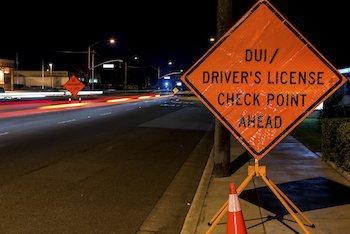Recent Blog Posts
When Should Parents Contact a Juvenile Defense Attorney?
 When your teen faces charges for illegal actions, a million thoughts can race through your mind. You may wonder how these charges could affect your child’s future, and you likely have questions about effective defense strategies.
When your teen faces charges for illegal actions, a million thoughts can race through your mind. You may wonder how these charges could affect your child’s future, and you likely have questions about effective defense strategies.
Juvenile criminal charges can severely compromise a teen’s opportunities, which is why it is critical that parents consult a juvenile criminal attorney for advice. A lawyer can assess the case and attempt to devise a strong defense strategy that reduces penalties or potentially convinces the court to drop the charges.
According to the Connecticut Judicial Branch, anyone under the age of 18 who has broken a federal or state law will normally be tried for a delinquent act—not for a criminal offense. It is important to keep in mind, however, that there are exceptions to this rule depending on the severity of the crime, especially in regard to major felonies.
4 Myths about DUI Laws
 As is common with many other areas of the law, alcohol-related driving offenses are susceptible to a number of popular myths. Many of these fabrications not only are false, but they also can land you in a lot of trouble if you believe them. All drivers should be aware of the laws of the road, and DUI laws are some of the most important. In order to protect yourself under the law, you should be aware of some of the most popular misconceptions regarding driving under the influence.
As is common with many other areas of the law, alcohol-related driving offenses are susceptible to a number of popular myths. Many of these fabrications not only are false, but they also can land you in a lot of trouble if you believe them. All drivers should be aware of the laws of the road, and DUI laws are some of the most important. In order to protect yourself under the law, you should be aware of some of the most popular misconceptions regarding driving under the influence.
1. There Are Ways to Fool a Breathalyzer
Breathalyzers display an accurate measurement of a driver's blood-alcohol level by analyzing his or her breath. Since police began using these machines, urban myths about fooling them have continued to flourish. These have included everything from brushing your teeth to placing a battery or penny in your mouth. Some people have even suggested that being a smoker decreases the breathalyzer's ability to take a reading. According to Bactrack.com, these are all entirely untrue.
When Juveniles Are Tried as Adults in Connecticut
 There has been much media coverage over a recent murder case which occurred in downtown Stamford several weeks ago. According to details released by law enforcement, the 52-year-old male victim was walking out of a fast-food restaurant when he accidently bumped into a 15-year-old teenager. The teen, along with two other males, allegedly beat the victim with hands and a stick. At some point, one member of the group pulled a knife and stabbed the victim several times in the heart, while the other two continued to beat him. A passing ambulance saw the victim on the ground and quickly transferred him to the hospital. The man died several hours later.
There has been much media coverage over a recent murder case which occurred in downtown Stamford several weeks ago. According to details released by law enforcement, the 52-year-old male victim was walking out of a fast-food restaurant when he accidently bumped into a 15-year-old teenager. The teen, along with two other males, allegedly beat the victim with hands and a stick. At some point, one member of the group pulled a knife and stabbed the victim several times in the heart, while the other two continued to beat him. A passing ambulance saw the victim on the ground and quickly transferred him to the hospital. The man died several hours later.
The 15-year-old teen has been arrested and charged with the man’s murder. Police claim that he is the person who stabbed the victim. However, prosecutors have charged him as an adult, not a juvenile. He is currently being held on a $2 million bond at a juvenile detention center. Although many people are upset over the tragic and violent way the victim died, there are also many people who are questioning why the 15-year-old accused is being processed in the adult criminal justice system, and not the juvenile system.
What Constitutes Domestic Violence against a Family Member?
 Facing domestic violence charges is a serious matter. If convicted, defendants may have a criminal record and a potential jail sentence.
Facing domestic violence charges is a serious matter. If convicted, defendants may have a criminal record and a potential jail sentence.
Connecticut’s domestic violence laws do not discriminate based on gender, age, ethnicity, sexual orientation, education, or immigration status, according to the Connecticut Coalition Against Domestic Violence. If you face domestic violence charges, it is important that you know your rights and consult an attorney with experience handling cases like yours.
Definition of Family Violence
In Connecticut, it is illegal for anyone to assault, threaten, or stalk another person, even if that person is a family member, household member or ex-partner. The state does not consider verbal abuse to be domestic abuse unless it causes physical harm.
Crimes on University Campuses
 A lot has been in the news lately about crimes on college campuses, especially those dealing with sexual assault and rape. The recent Rolling Stone article about rape on the University of Virginia campus—that was later shown to be in large part manufactured and incorrectly reported by Rolling Stone—may serve to belie just how serious and honest the vast majority of these crimes are.
A lot has been in the news lately about crimes on college campuses, especially those dealing with sexual assault and rape. The recent Rolling Stone article about rape on the University of Virginia campus—that was later shown to be in large part manufactured and incorrectly reported by Rolling Stone—may serve to belie just how serious and honest the vast majority of these crimes are.
According to the Washington Post, the number of victims who come forward to report sexual assault or forcible sexual offenses on college campuses have continued to increase in recent years. This could be in part due to the encouragement of university officials that students come forward to report such incidences, rather than to sweep them under the rug. In 2012, it was reported that Penn State University had the nation’s highest number of reports of forcible sex offenses on campus at a staggering 56 incidents in one school year.
New Bills Introduced for Further Marijuana Decriminalization
 Attitudes across the country are changing when it comes to marijuana and the punishment for marijuana possession, and Connecticut is no exception. According to Connecticut law, the state currently carries fines and criminal penalties for certain levels of possession. Possession of less than one-half ounce of marijuana carries a $150 fine for the first offense. Penalties become increasingly harsh with frequency of offense: a second offense can carry up to a $500 penalty. Third-time offenders will have to attend drug education classes, which will be paid for by their own means. The more substance, the higher the penalty as well: if a person has more than a half-ounce but less than 4 ounces of cannabis he or she can face up to a $1,000 fine and up to a year in prison, or both. These penalties were enacted in 2011, making possession of small amounts of marijuana a civil violation instead of a criminal offense, as it had been in previous years.
Attitudes across the country are changing when it comes to marijuana and the punishment for marijuana possession, and Connecticut is no exception. According to Connecticut law, the state currently carries fines and criminal penalties for certain levels of possession. Possession of less than one-half ounce of marijuana carries a $150 fine for the first offense. Penalties become increasingly harsh with frequency of offense: a second offense can carry up to a $500 penalty. Third-time offenders will have to attend drug education classes, which will be paid for by their own means. The more substance, the higher the penalty as well: if a person has more than a half-ounce but less than 4 ounces of cannabis he or she can face up to a $1,000 fine and up to a year in prison, or both. These penalties were enacted in 2011, making possession of small amounts of marijuana a civil violation instead of a criminal offense, as it had been in previous years.
The Gray Area of Statutory Rape
 Sex crimes are pretty black and white when it comes down to it. Yet there are some cases in which the crime—and the punishment—can fall into a rather gray area, and statutory rape is among these. Somewhat surprisingly, most states do not refer specifically to statutory rape, but instead designate such a crime as sexual assault or sexual abuse. Assault and abuse are blanket terms used to designate or identify such prohibited activity. Regardless of semantics, statutory rape is a sexual crime against a person who is not of age, based on the premise that until a person reaches a certain age, sexual contact with that person is illegal, regardless of consent. In most states, including Connecticut, the age of legal consent is 16 years old.
Sex crimes are pretty black and white when it comes down to it. Yet there are some cases in which the crime—and the punishment—can fall into a rather gray area, and statutory rape is among these. Somewhat surprisingly, most states do not refer specifically to statutory rape, but instead designate such a crime as sexual assault or sexual abuse. Assault and abuse are blanket terms used to designate or identify such prohibited activity. Regardless of semantics, statutory rape is a sexual crime against a person who is not of age, based on the premise that until a person reaches a certain age, sexual contact with that person is illegal, regardless of consent. In most states, including Connecticut, the age of legal consent is 16 years old.
The punishment in Connecticut for statutory rape is steep—from 10 to 25 years in prison with a mandatory minimum of five years if the victim is between the age of 10 and 16. A convicted individual will receive a mandatory minimum sentence of 10 years in prison if the victim is less than 10 years old.
Ignition Interlock Devices Will Soon Be Required for First-Time DUI Offenders
 Beginning on July 1, 2015, a stricter ignition interlock requirement will be implemented for drivers convicted of driving under the influence (DUI). Under the new law, the Department of Motor Vehicles is authorized to require ignition interlock devices to be installed in the vehicles of first-time DUI offenders.
Beginning on July 1, 2015, a stricter ignition interlock requirement will be implemented for drivers convicted of driving under the influence (DUI). Under the new law, the Department of Motor Vehicles is authorized to require ignition interlock devices to be installed in the vehicles of first-time DUI offenders.
An ignition interlock device is a small device that measures blood alcohol which is wired into the ignition of a vehicle. The driver must blow into the device before the vehicle may be started, and the vehicle will not start if the driver has a measurable blood alcohol level. Ignition interlock devices are shown to decrease the number of repeat DUI offenses by as much as 67 percent.
The new law impacts penalties imposed for a DUI conviction or for administrative violations of Connecticut’s drunk driving laws. In addition to requiring interlock ignition devices for DUI first offenders, the new law also:
Consequences of Underage Drinking for Teens and Parents
 Spring has finally arrived in Connecticut, and that means that the school year will be winding down soon. For high school students – especially seniors – the end of the school year brings with it exciting events. If you have teenagers, they have probably begun making plans for proms, class trips, award banquets, and other activities. It is not uncommon, however, for underage drinking to occur, and the consequences of such drinking can be serious for not only teens, but also for their parents.
Spring has finally arrived in Connecticut, and that means that the school year will be winding down soon. For high school students – especially seniors – the end of the school year brings with it exciting events. If you have teenagers, they have probably begun making plans for proms, class trips, award banquets, and other activities. It is not uncommon, however, for underage drinking to occur, and the consequences of such drinking can be serious for not only teens, but also for their parents.
In Connecticut, the legal drinking age was raised to 21-years-old in 1985– and has remained there ever since. According to Connecticut General Statute Sec. 30-89, minors are not allowed to possess alcohol, whether in a public road or street; or a private or public place. The fine for violating the law can be up to $500.
It is also illegal for a minor to purchase alcohol, even if the establishment does not request legal proof of age, such as a driver’s license. And if a minor is carded, and provides a false identification, they can be fined anywhere from $200 up to $500 and be sentenced to up to 30 days in jail.
Distracted Driving Causes More Teen Crashes Than Previously Thought
 If you are a teen driver or the parent of a teen driver, you have likely heard many warnings about the dangers of distracted driving, including texting and using a cell phone. A recent study shows that distracted driving is responsible for more teen car crashes than previously thought.
If you are a teen driver or the parent of a teen driver, you have likely heard many warnings about the dangers of distracted driving, including texting and using a cell phone. A recent study shows that distracted driving is responsible for more teen car crashes than previously thought.
The AAA Foundation for Traffic Safety recently studied videos taken from vehicle event recorders of almost 1,700 crashes involving teen drivers. These videos showed that distracted driving was a factor in 58 percent of accidents. This is almost four times higher than the National Highway Traffic Safety Administration’s previous estimate that 14 percent of accidents involving teen drivers were caused by distracted driving.
The following is a breakdown of the most frequent types of distractions and the percentage of accidents to which they were linked in the study:







